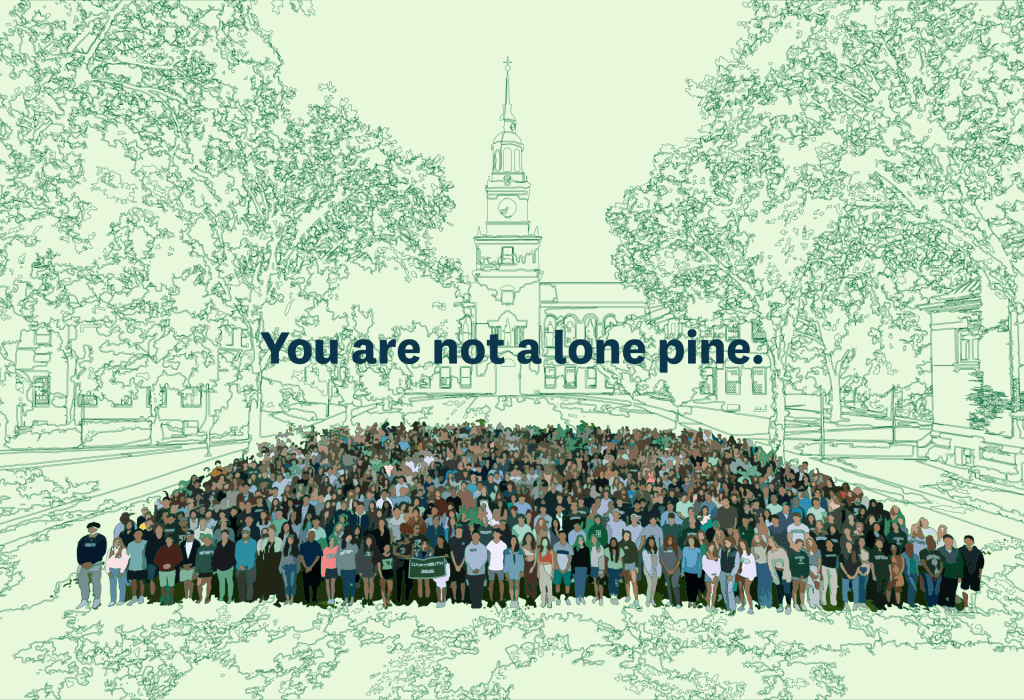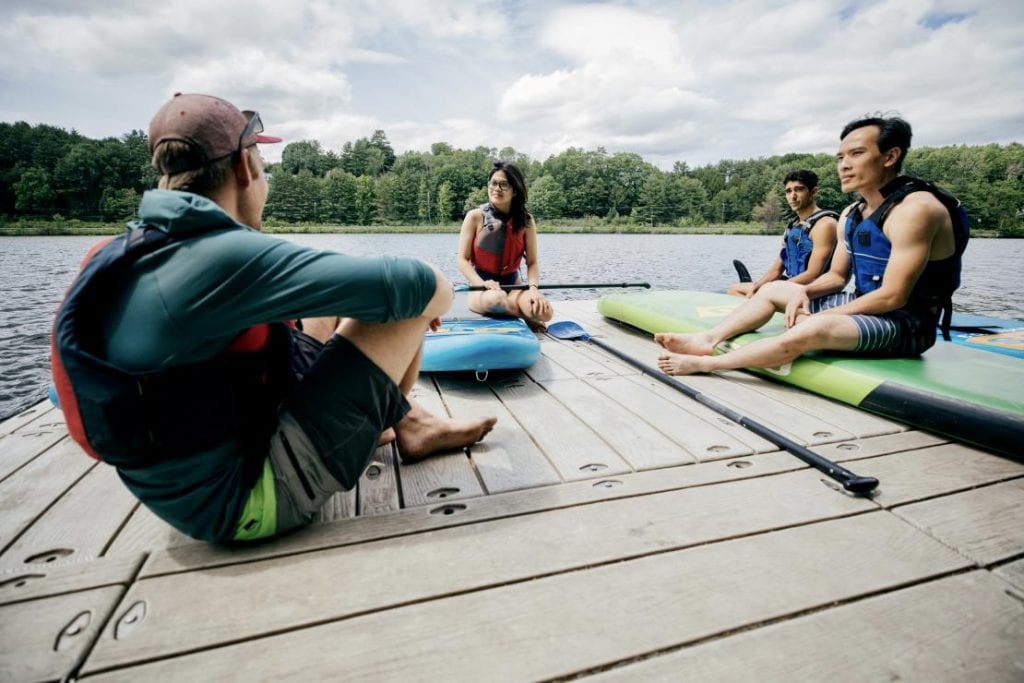
Dear Dartmouth,
After a year and a half of primarily remote work, it feels like a dramatic shift to sit in an office on the 3rd floor of Robo, listening to the muted conversations of students out on the Collis patio and the endlessly fascinating DOC playlists being broadcast from our front steps. (“It’s Raining Men?” Really? Did not see that coming…)
As we reconnect with students, I’ve noticed that everyone is in a bit of a different place. I’ve spoken with students who are thrilled to be back in person and others who have expressed reservations and concerns for safety and wellbeing. However you may be feeling, it seems fair to say that we are all adapting to the ever-changing circumstances of the world around us. And while that has always been true, the past couple years have amplified our awareness of this fact to the point where it has become a potential source of discomfort. Each day/week/month seems to offer so much to take in, sort out, and make sense of that even when we’re able to wrap our heads around some of these things, we still have to figure out how each of these things intersects with who we are, who we want to be, how we will respond, and where we hope to go from here. And that is a lot to manage.
In recognizing the complexities that make up your experiences this fall and all of the transitions in coming (back) to campus, we made the choice to embrace a new wellbeing theme for the start of the academic year – “Strength in Self.” Here’s how my colleague, LB, sketched out this concept:
“Strength in Self is all about confidently choosing to stride through the ups and downs of life with resilience and belief in ourselves. It’s recognizing that we each uniquely have the capabilities, strengths, and inherent wisdom to create a life we truly want by making intentional shifts of perspective and boldly owning our self-worth.”
Before we go any deeper into what this theme involves, let’s talk for a moment about what it’s NOT.
- Strength in Self does not mean that you are on your own. The Lone Pine is an important symbol of Dartmouth but you need to know that you are not a-lone. You are part of a community that cares – one that will celebrate your successes with you and be there for you when you struggle. At Dartmouth, we know that we are stronger together.
- Strength in Self does not mean that you need to have it together all the time. Dartmouth will challenge you in ways you could not have anticipated, and it is okay to not be okay. But you didn’t come here because it would be easy. You came here because you believed that Dartmouth could help bring forth the extraordinariness that you have within you. Taking time to check in with yourself, and being honest about what you’re feeling and how you’re doing can help you find resilience and character that you didn’t even know you possessed.
- Strength in Self does not mean that the life you want is something you should be able to bring into existence immediately and all at once. The life you want to create is the ongoing work of your lifetime, and you can only author that life one chapter at a time. Consider the story you want your life to tell and where you’re at in that story right now. Know that you don’t have to take on more than what is realistic in this moment. Instead, focus on your experiences in the here and now and trust that you are building a foundation for all that is to come.
So let’s come back to what Strength in Self IS! It’s about establishing a strengths-based perception of who you are as a person. It’s about believing that you have all the positive qualities within you that you need. And it’s about cultivating these capacities and bringing them forth in ways that allow you be more fully you and make the contributions that only you are capable of making to the world.
Here at Dartmouth, it means that you are a vital part of a community that helps you see the unique strengths within you and empowers you to illuminate the strengths you see in others. We’ll talk a lot more about your strengths as we explore this theme more fully during September and October. For now, let’s recap to get you primed for all that we hope the next couple months will offer you. Here’s what LB said in our weekly newsletter (sign up here if you’re not on our list!) to introduce this theme to our campus:
First things First
In order to “create a life we truly want”, it’s helpful to recognize a few things:
- It’s hard at times! Sometimes what you want seems to go against what everybody else wants and that can leave you susceptible to doing things that aren’t “you”. The key is to notice when this happens and see how it leaves you feeling, knowing you can choose a different way next time.
- Your Way. There is no “right” way to do this thing called life. What matters is that you are choosing to spend your time at Dartmouth (and beyond) in a way that aligns with who you are and what you care about.
- Takes Vision. In order to “do” life (or Dartmouth) the way you want, you have to know what you want. Revisit this reflection regularly this term to help you envision what this is for you:
Assuming anything were possible, what experiences do you want to create for yourself this term?
As we launch into this new academic year, please take care of yourself, look out for those around you, and know that our SWC team is here to support you. Please explore what we have to offer, and don’t ever hesitate to reach out!
Take care and be well,
Todd









